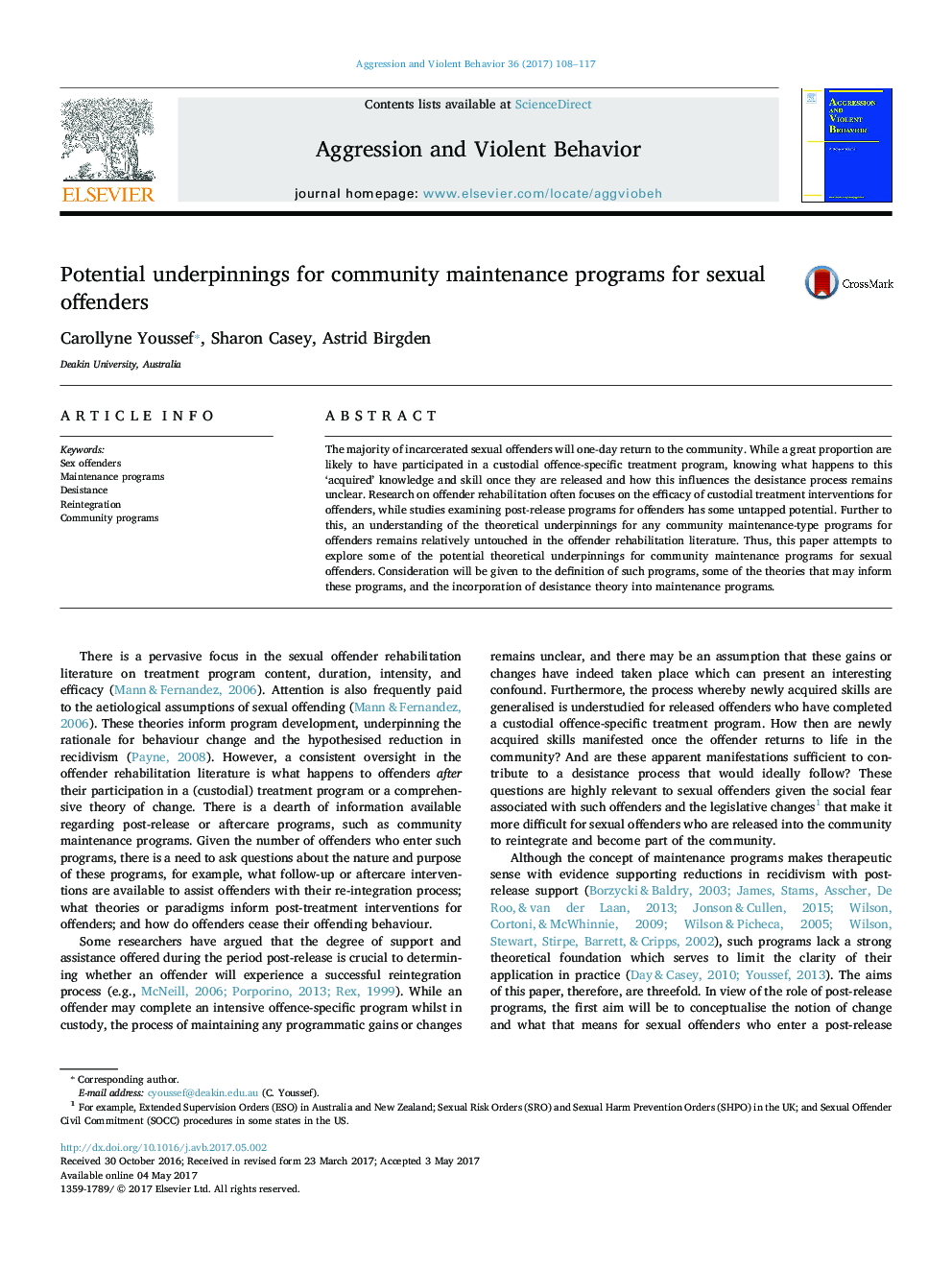| Article ID | Journal | Published Year | Pages | File Type |
|---|---|---|---|---|
| 4760060 | Aggression and Violent Behavior | 2017 | 10 Pages |
The majority of incarcerated sexual offenders will one-day return to the community. While a great proportion are likely to have participated in a custodial offence-specific treatment program, knowing what happens to this 'acquired' knowledge and skill once they are released and how this influences the desistance process remains unclear. Research on offender rehabilitation often focuses on the efficacy of custodial treatment interventions for offenders, while studies examining post-release programs for offenders has some untapped potential. Further to this, an understanding of the theoretical underpinnings for any community maintenance-type programs for offenders remains relatively untouched in the offender rehabilitation literature. Thus, this paper attempts to explore some of the potential theoretical underpinnings for community maintenance programs for sexual offenders. Consideration will be given to the definition of such programs, some of the theories that may inform these programs, and the incorporation of desistance theory into maintenance programs.
